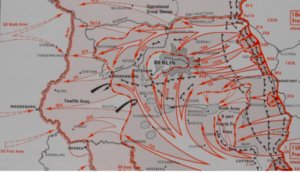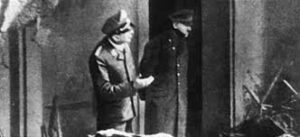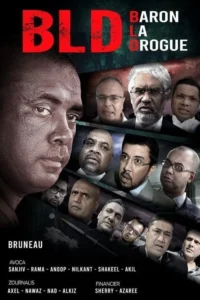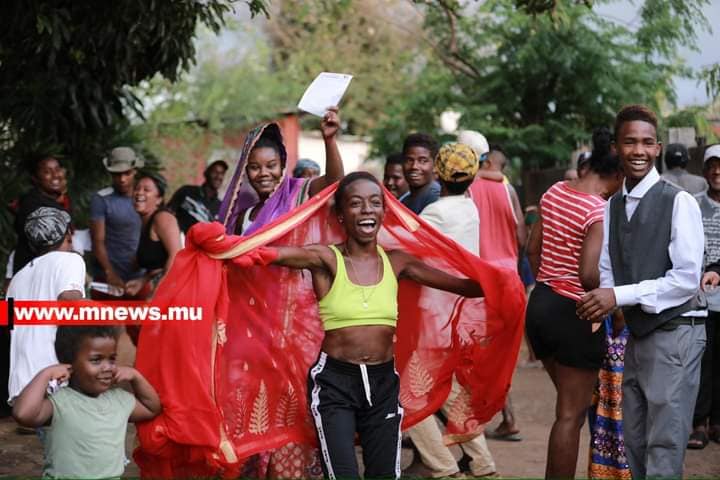![]()
The Allied Powers Are Approaching Berlin: Pravind Has Only Two Bullets Left in His Bunker—Financial Power and Communalism


Mauritius, once hailed as a beacon of democracy and economic prosperity, now teeters on the brink of authoritarianism. Prime Minister Pravind Jugnauth’s regime has tightened its grip on power through covert operations, intimidation, and propaganda tactics, closely resembling the final, desperate days of a crumbling dictatorship. As the opposition gains momentum and public dissatisfaction grows, Pravind clings to two crucial weapons in his bunker: financial power and communalism.

But as Pravind Jugnauth’s regime stands on the precipice of collapse, the signs of authoritarianism are unmistakable. From political killings to the ruthless suppression of the free press, Mauritius is on a dangerous path.
1. The Political Killing of Soopramanien Kistnen

The shocking murder of Soopramanien Kistnen, a former MSM activist who had been linked to corruption allegations within the ruling party, sent shockwaves through Mauritius. Kistnen’s body was found burned in a sugarcane field in 2020, and the investigation surrounding his death was marred by accusations of a cover-up. His assassination is widely viewed as a political killing aimed at silencing him before he could expose the deep-seated corruption within the government. This brazen act of violence serves as a chilling reminder of how far the regime is willing to go to eliminate threats.
Kistnen’s death has come to symbolize the regime’s willingness to resort to extreme measures to preserve power. The authorities’ botched investigation, coupled with the lack of justice for Kistnen’s family, points to state complicity, further eroding public trust in Mauritius’ democratic institutions.
2. The Hitlist: Journalists and Opposition Under Siege

As part of its campaign to silence dissent, the Jugnauth regime has allegedly compiled a hitlist of journalists, opposition members, and critics. Those on this list face a range of attacks, from public defamation to covert threats. The regime’s strategy is clear: silence all opposition through fear, harassment, or worse. Journalists, in particular, have become prime targets for the regime’s crackdown.
- Government Task Force Sent After Fleeing Journalist: In an unprecedented move, the government dispatched its specialized Task Force Quad to track down a journalist who fled to Réunion Island, fearing for their life. This task force, normally deployed for high-level security threats, was instead used to hunt down an individual whose only crime was to report on government corruption. Such a heavy-handed response to free speech underscores the regime’s growing paranoia and its view of journalists as enemies of the state.
- Covert and Open Intimidation: Journalists from independent outlets are under constant surveillance. Many have had their names publicly dragged through the mud by pro-government media, while others have faced direct threats or attacks on their families. The regime’s list of targets continues to grow, but journalists are not the only ones under siege—opposition members and activists also face severe consequences for speaking out.
3. State-Sponsored Assassinations and Mysterious Deaths
Beyond Kistnen’s murder, Mauritius has seen a string of mysterious deaths involving individuals linked to the opposition or those attempting to expose corruption. Several procurement staffs involved in working for the state and non-state’s procurement department have been found dead under suspicious circumstances. The systematic elimination of those who pose a threat to the regime raises alarm bells about the government’s willingness to use lethal force to protect its interests. These killings are clear markers of the descent into authoritarian rule.
4. Big Media Companies Coerced
Mauritius’ largest media outlets, once champions of free speech, have been co-opted by the government through coercion and financial manipulation. Journalists and editors are forced to toe the line or risk losing critical advertising revenue, or worse, face legal action. As a result, state propaganda now dominates the media landscape, with only a few brave independent outlets still standing up to the regime.
Those that resist face swift retaliation: financial boycotts, lawsuits, or even the risk of nationalization. The state has wielded its economic power to coerce media companies into compliance, further eroding the country’s already fragile democracy.
5. Manipulation of Parliament: Speaker as Watchdog
The Mauritian Parliament, traditionally a forum for robust debate, has been reduced to a rubber-stamp institution under Pravind Jugnauth. The Speaker of the National Assembly, Sooroojdev Phokeer, has been criticized as nothing more than a “bulldog” for the ruling party, enforcing the government’s will and stifling opposition voices.
- Opposition Silenced: Phokeer regularly ejects opposition members from parliamentary sessions, sometimes banning them for three or four sittings at a time. Questions about government corruption or controversial policies are systematically shut down, leaving the public in the dark about the inner workings of the regime. The Speaker’s bias has turned Parliament into a hostile space for the opposition, where genuine debate is stifled, and democratic oversight is non-existent.
- Protection for the Government: The Jugnauth regime uses Parliament not for accountability but as a shield. When the opposition attempts to question government actions, particularly regarding corruption or public spending, the Speaker intervenes, protecting Pravind Jugnauth and his allies from scrutiny.
6. Financial Power as a Tool of Oppression
Pravind Jugnauth’s regime wields billions of rupees from foreign donors as one of its two final weapons. These funds are strategically funneled into state contracts, subsidies, and financial aid directed at businesses and individuals loyal to the ruling party. Meanwhile, those aligned with the opposition face financial ruin, as their businesses are boycotted, transferred, or even nationalized. This vast influx of foreign money allows the regime to punish its enemies and reward its allies, ensuring that Jugnauth maintains a tight grip on power.
7. Weaponization of Communalism
The other tool in Pravind Jugnauth’s arsenal is communalism. In a country as ethnically and religiously diverse as Mauritius, the regime has found ways to exploit communal divisions for political gain. By favoring certain groups over others, the government fosters an atmosphere of distrust and resentment, effectively preventing the rise of a united opposition. Communal tensions are stoked and exploited, particularly during election periods, to ensure the ruling party retains its grip on power.
This cynical use of communalism allows the regime to fracture opposition movements and keep the country divided, ensuring that no single group can mount a significant challenge to the government’s rule.
8. Defamation, Boycotts, and Nationalization of Opposition-Aligned Businesses

Businesses and individuals associated with the opposition are targeted with a range of retaliatory measures. Those who are perceived as too close to opposition parties face:
- Defamation and Smear Campaigns: The government employs state-controlled media and online bot armies to defame and discredit opposition members and their supporters. Personal attacks, fabricated scandals, and public shaming are all part of the regime’s tactics to neutralize threats.
- Boycotts and Economic Isolation: Businesses owned by opposition supporters or critics of the government are systematically boycotted. In some cases, these businesses are blacklisted, effectively cutting them off from lucrative state contracts or forcing them into bankruptcy.
- Forced Transfers and Nationalization: In extreme cases, businesses deemed too critical of the regime have been taken over by the state. Owners are either forced out or pressured into selling, with their enterprises placed under government control.
Conclusion: Pravind’s Last Stand
With political killings, state surveillance, attacks on the judiciary, and a relentless crackdown on the free press, Mauritius is dangerously close to falling into dictatorship. Pravind Jugnauth’s regime has weaponized financial power and communalism to hold onto control, but even these tools are losing their effectiveness in the face of growing public dissent. The regime’s use of propaganda, coercion, and fear may delay its fall, but the cracks are widening.
The opposition forces are growing stronger, and the people are increasingly aware of the regime’s corrupt practices. Like a dictator in his bunker, Pravind Jugnauth may have only two bullets left—his financial power and his manipulation of communal divisions—but it won’t be enough to prevent the inevitable collapse of his rule.
Mauritius stands at a critical juncture: will it succumb to full-fledged authoritarianism, or will the forces of democracy prevail? The world is watching closely as this island nation fights for its future.
Benjamin Franklin Jr. – Coco Maurice



